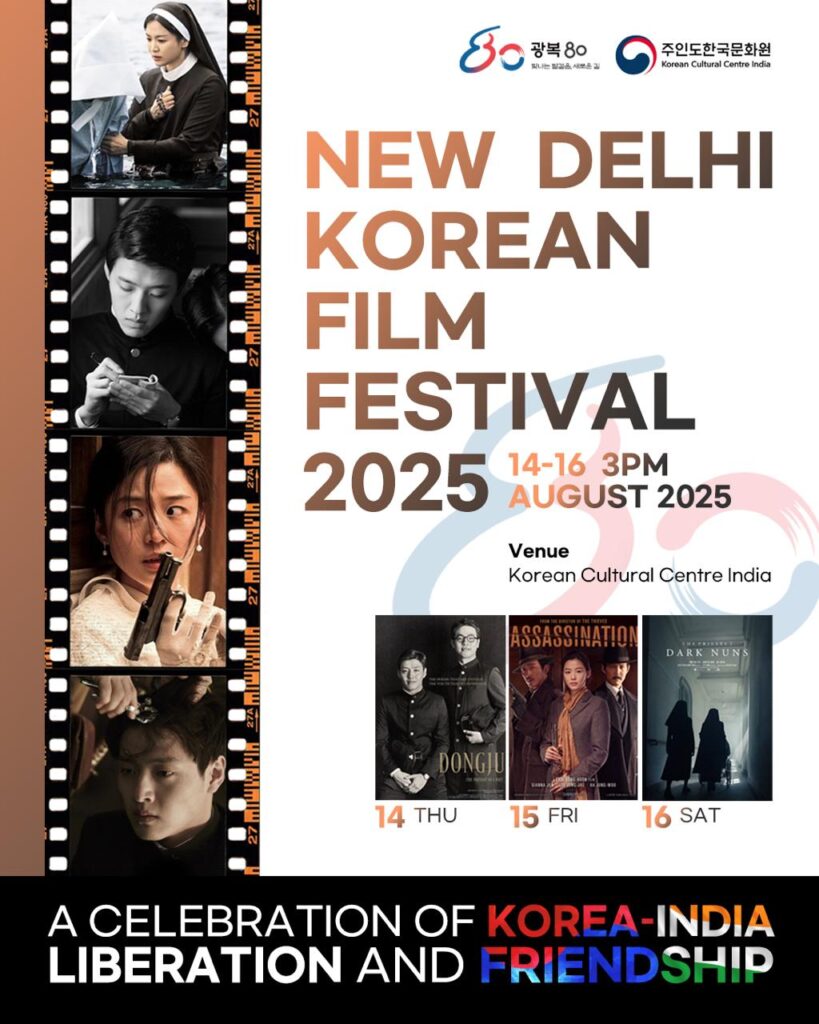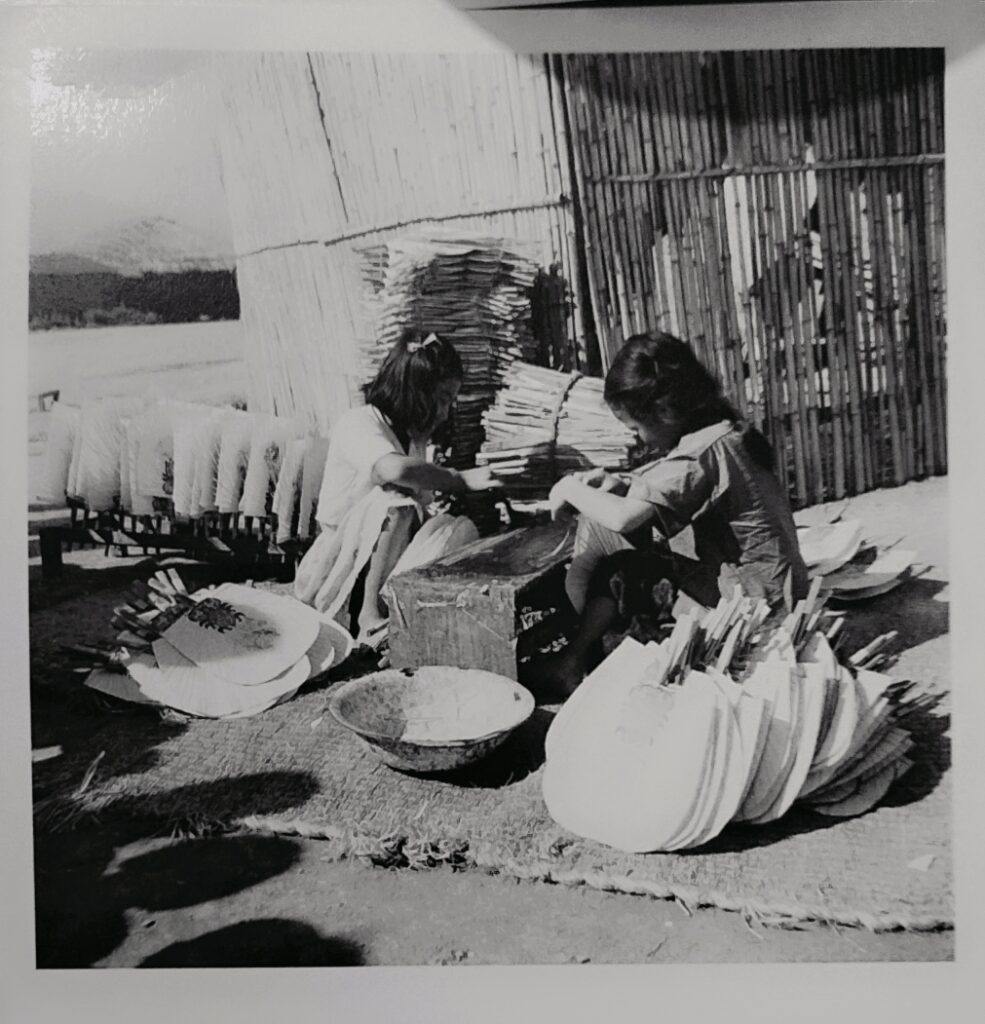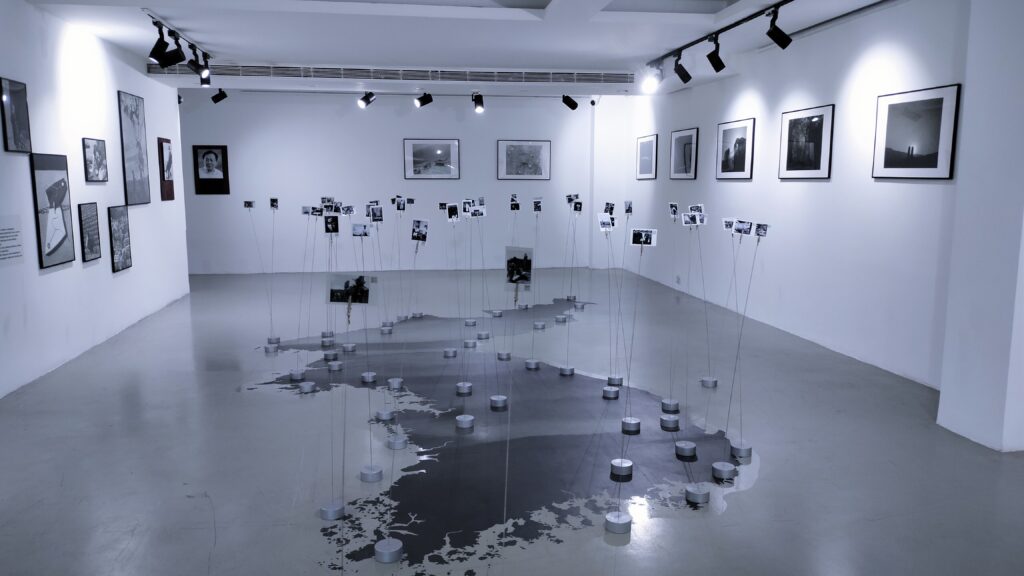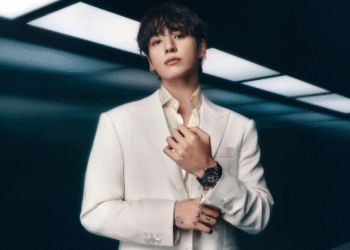A second visit to the Korean Cultural Centre India (KCCI) was quite different from my first—back then, I had only explored the library, which I would like to call a ‘K-pop gem cave,’ and the restaurant. This time, multiple events were happening simultaneously and I got the opportunity to experience them.
The occasion took place from August 14 to 16, a period significant to both India and South Korea, as India celebrates Independence Day and South Korea celebrates Liberation Day on August 15. KCCI hosted three film screenings alongside an exhibition titled ‘Korea, In the Shadows of Pain, The Light of Dreams’. The exhibition explored South Korea’s journey to liberation through photographs and poetry from the colonial era. The poems expressed voices of resilience and longing for freedom, while the photographs captured the anguish of colonization and the nation’s desire for independence.

The curatorial approach was distinctive, featuring wall paintings, QR codes for historical context, and even a mini-screening room presenting documentaries on Korea’s colonial past. Visitors were also offered postcards with selected images—small memoirs to take home. The lighting design, shifting in tone and mood, amplified the emotional impact of the works, creating a near-illusory yet moving atmosphere.

Before the film screening, my companions and I hurried to the auditorium, which exuded a warm and inviting ambience. The staff were attentive, ensuring that no one was left behind. The host welcomed the audience before introducing the screening of ‘Dark Nuns’, a supernatural thriller directed by Hyeok-jae Kwon and starring Song Hye-Kyo and Jeon Yeo-Been. Blending psychological horror with elements of Korean cultural rituals, the film held my attention throughout. Afterwards, the audience was invited to share their reflections. I contributed by discussing how the film suggested that present fears are often shaped by unresolved traumas of the past—an interpretation that echoed Freud’s psychoanalytical perspective.

The event concluded with group photographs, each taken in a cheerful, lighthearted spirit as we posed differently while saying ‘Kimchi.’ A large whiteboard was also provided for attendees to share their impressions – I wrote my thoughts in Korean, expressing both my admiration for Song Hye-Kyo and my fondness for Korean culture and horror cinema.
To end the evening, I visited the restaurant upstairs, where the lively atmosphere—enhanced by K-pop music playing in the background—made enjoying a steaming bowl of spicy ramen all the more memorable. Before leaving, I also took the opportunity to converse in Korean with one of the staff members about upcoming events and was pleased to find the exchange both smooth and encouraging for my language practice.
Overall, the exhibition and film festival at KCCI offered a rare blend of history, art, cinema, and cultural exchange, leaving me both insightful and inspired
Written by: Bhumi
Connect with us on Instagram | X | YouTube for more content, interviews, & news.














